What is machine learning as a service (MLaaS)?
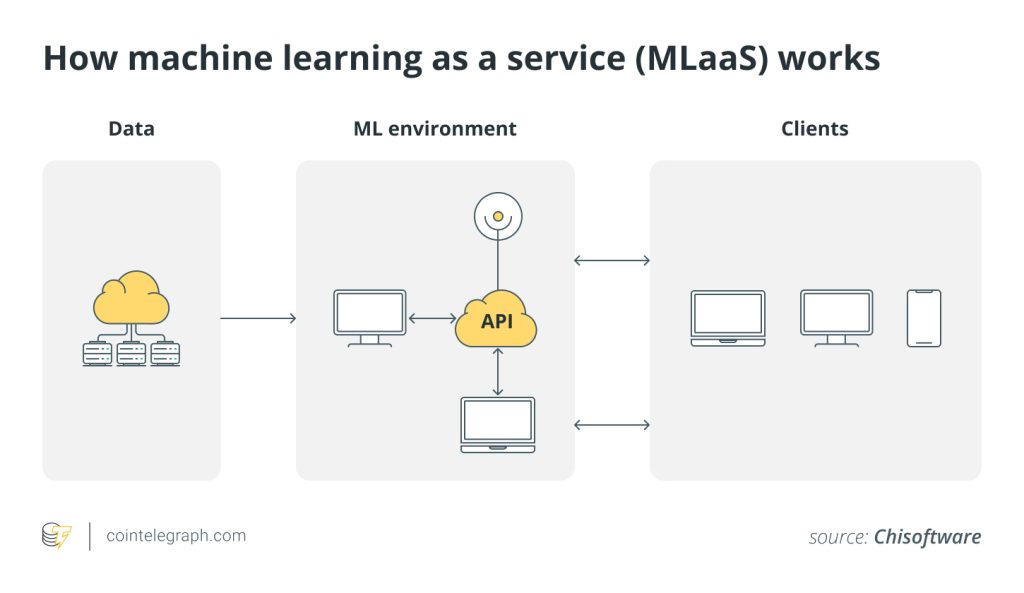

Machine-learning-as-a-service (MLaaS) is transforming the accessibility of advanced analytics, allowing users to harness the power of machine learning through easy-to-use, scalable and cost-effective cloud-based services.
With no need for elaborate setups or specialized expertise, MLaaS opens up a world of predictive analytics and sophisticated data processing to organizations of all sizes. It’s a scalable, cost-effective solution that breaks down the traditional barriers to entry into complex data analysis.
Integrating blockchain technology with MLaaS further enhances its appeal, imbuing it with unmatched data security and trust. Blockchain’s ability to ensure data integrity and traceability fortifies the MLaaS platform, making it an even more reliable choice for users. This pairing of technologies promises to streamline operations and provide a secure foundation for machine learning initiatives, paving the way for more thoughtful, more informed decision-making in an increasingly data-driven world.
What is machine-learning-as-a-service?
MLaaS refers to a range of services that offer machine learning tools as part of cloud computing services. The core components of MLaaS include data preprocessing, model training, model evaluation, prediction and automated data transformations. These elements work in concert to enable users to create, deploy and maintain machine learning models without having to invest in the physical infrastructure typically required for such tasks.
Data preprocessing in MLaaS involves cleaning and formatting data so that it’s suitable for use in machine learning models. Model training is the process by which the service uses data to train an algorithm to recognize patterns and make decisions. After training, the model is evaluated to ensure accuracy and effectiveness. Once a model is deemed satisfactory, it can be used to make predictions based on new data. Lastly, automated data transformations are used to ensure that incoming data is consistently in a format that the trained models can understand and process effectively.

Augmenting MLaaS’ effectiveness through blockchain
Blockchain technology can significantly enhance the effectiveness of MLaaS by providing a secure and transparent environment for data sharing. Blockchain’s distributed ledger system ensures that data exchanged across networks is immutable and traceable, which is essential for maintaining the integrity of data sets (especially training data) used in machine learning. For example, IBM’s blockchain platform has been leveraged to create secure data exchanges for feeding machine learning models.
This combination maintains privacy while enabling safe and transparent data sharing between numerous parties. Blockchain-based smart contracts can automate model access and data usage terms, ensuring compliance and fair compensation. Furthermore, using strategies like federated learning and decentralized model training via blockchain permits collaborative learning without disclosing private information.
Blockchain’s ledger system makes tracking data’s provenance and usage history simple, which is crucial for regulatory compliance. However, scalability, interoperability and integration complexities need to be addressed for successful implementation. Nonetheless, the synergy between blockchain and MLaaS holds great promise for transforming data-driven operations while maintaining security and openness norms.
The rise of cloud-based MLaaS
The advent of cloud-based MLaaS has marked a significant turning point in the field of data science. By offering machine learning capabilities as a cloud service, providers like Amazon Web Services with their SageMaker, Google Cloud AI and Microsoft Azure Machine Learning have made powerful data science tools more accessible and cost-effective.
These platforms provide an end-to-end machine learning ecosystem that includes data storage, preprocessing, model building, training and deployment, all hosted on the cloud. This approach offers benefits like scalability, flexibility and reduced overhead costs.
For instance, Google Cloud AI provides AutoML, a service that enables users with limited machine learning expertise to train high-quality models tailored to their business needs. Similarly, AWS SageMaker offers a fully managed service that allows data scientists to build, train and deploy machine learning models quickly. These services are scalable, meaning they can handle an increase in workload by simply adjusting the cloud resources without compromising performance.
Seamless ML model deployment using MLaaS
The deployment of machine learning models is a critical phase in the data science pipeline, one that has been greatly simplified by the advent of MLaaS. The MLaaS framework streamlines the transition from a developed model to a fully operational one, making this process more efficient and user-friendly for businesses of all sizes.
Traditional model deployment requires significant setup, including configuring servers, managing dependencies and ensuring scalability, which can be both time-consuming and costly. MLaaS platforms, however, abstract these complexities, allowing businesses to deploy their models with just a few clicks.
Services like AWS SageMaker, Azure ML and Google AI Platform have revolutionized this process with features like automated model tuning, one-click deployment and easy monitoring of deployed models. For example, SageMaker’s direct integration with Amazon EC2 instances allows users to deploy their trained models instantly, scaling the necessary compute resources up or down as traffic demands change. This elasticity means businesses can maintain model performance without overspending on infrastructure.
MLaaS for predictive analytics
MLaaS has become a game-changer for businesses seeking to implement predictive analytics into their strategic planning. The use of MLaaS enables companies to forecast outcomes based on historical data, improving decision-making and offering a competitive edge. For example, a streaming service might use MLaaS to predict viewer preferences for personalized content recommendations, or a logistics company might predict fleet maintenance needs to prevent costly downtimes.
MLaaS platforms simplify the complex process of developing predictive models. They automate various steps, such as feature selection, model training and validation, making predictive analytics more accessible. This allows businesses, even those without in-depth analytics expertise, to benefit from insights that were once the domain of larger companies with dedicated data science teams.
Real-world examples of MLaaS
MLaaS has established itself as a transformative force across diverse industries, proving to be a versatile tool for businesses seeking to leverage the power of artificial intelligence. In the realm of retail, MLaaS solutions like Amazon’s Forecast service use machine learning to predict product demand, optimize supply chains, and enhance customer experiences by personalizing product recommendations. This predictive capability can lead to significantly increased efficiency and customer satisfaction.
In the realm of blockchain-enhanced MLaaS, sectors where data integrity is non-negotiable are seeing significant advancements. For example, in the agricultural industry, MLaaS is combined with blockchain to track crop yields, predict optimal planting times, and monitor the supply chain from farm to table, ensuring transparency and quality control. IBM’s Food Trust is an initiative that employs this technology to maintain the integrity of food distribution channels.
In the finance sector, MLaaS is revolutionizing the way institutions approach fraud detection and risk management. For instance, Mastercard uses MLaaS to analyze transaction data in real-time, providing a predictive edge in detecting fraudulent activities and preventing them proactively. Similarly, banks and investment firms utilize MLaaS for algorithmic trading, where predictive models analyze market data to make automated trading decisions.
Pros and cons of MLaaS
MLaaS offers machine learning capabilities via a cloud service platform, removing the need for expensive infrastructure and specialized personnel. This democratizes access to advanced analytical tools for businesses of all sizes.
The model is cost-effective, with businesses paying only for the services they use, typically on a subscription basis. This approach allows for effective budget management and eliminates substantial upfront investments. The flexibility of the pay-as-you-go model also enables scaling to match business needs, which is especially beneficial for growing companies or those with varying demands.
However, MLaaS has some disadvantages. It can lead to potential issues with data security, as sensitive information is stored and processed on external servers. Also, the dependency on the service provider’s stability and reliability can be a risk.
Furthermore, there might be limitations in terms of customization and control, as MLaaS solutions may not offer the same level of bespoke service that a tailor-made, in-house solution could provide.
The future of MLaaS
The horizon for MLaaS is expanding, with a clear trend toward ubiquitous adoption across various sectors. As the technology becomes more accessible and cost-effective, industries that have been reticent are now poised to implement MLaaS for a multitude of applications, ranging from healthcare diagnostics to enhanced customer service personalization in retail.
Future advancements are expected to significantly refine personalization and automation capabilities, leading to more sophisticated decision-making processes and interactions. The integration of MLaaS with burgeoning technologies such as the Internet of Things (IoT) and edge computing will likely catalyze real-time analytics and smarter infrastructures, while advances in natural language processing will enhance virtual communication.

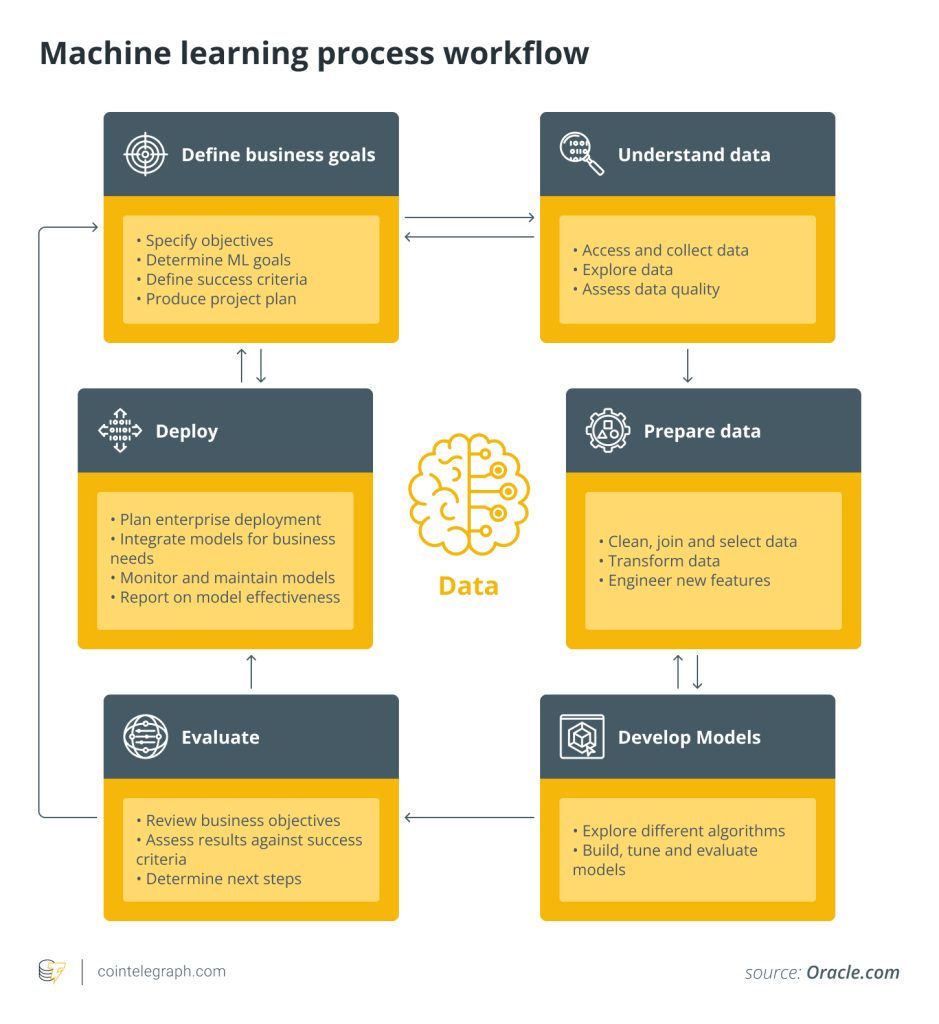

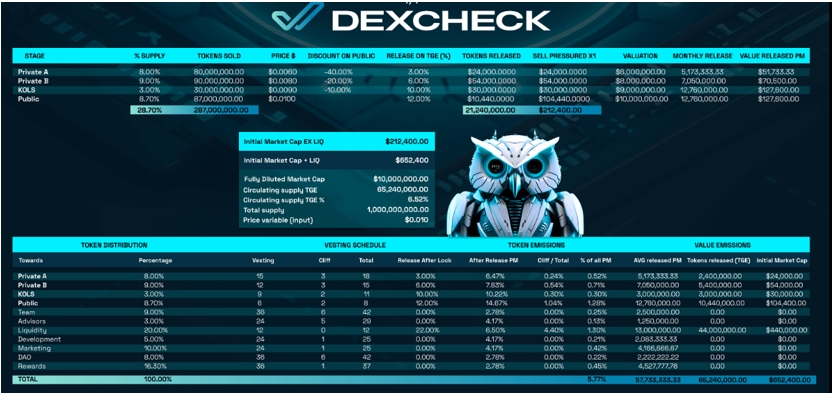
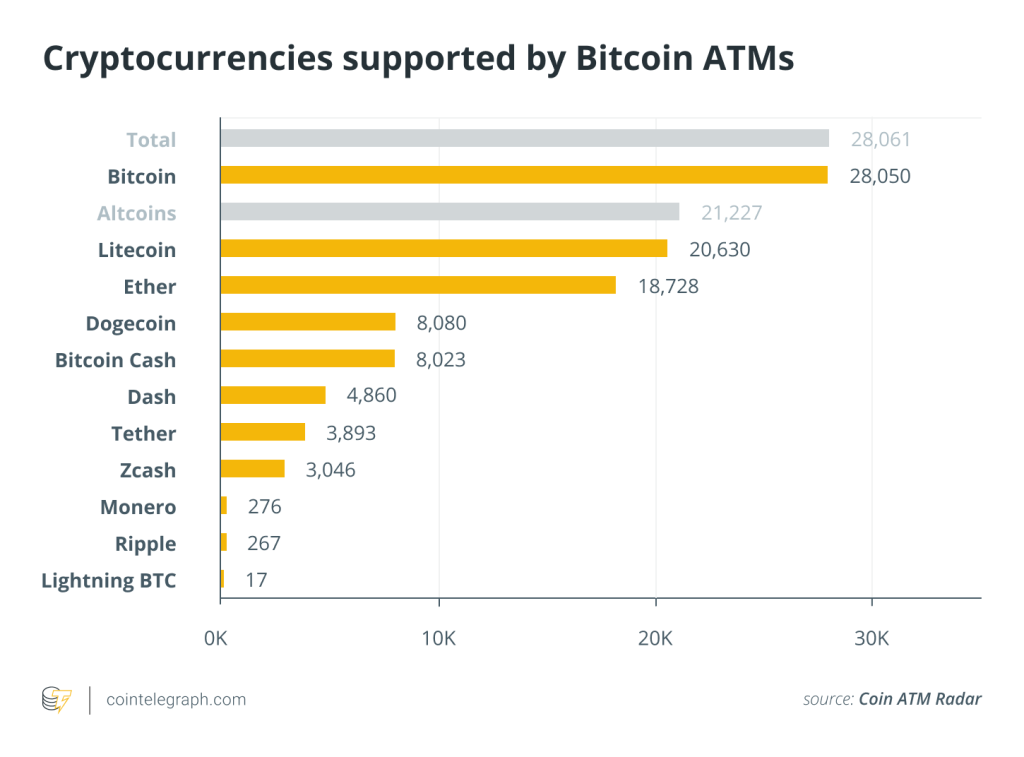
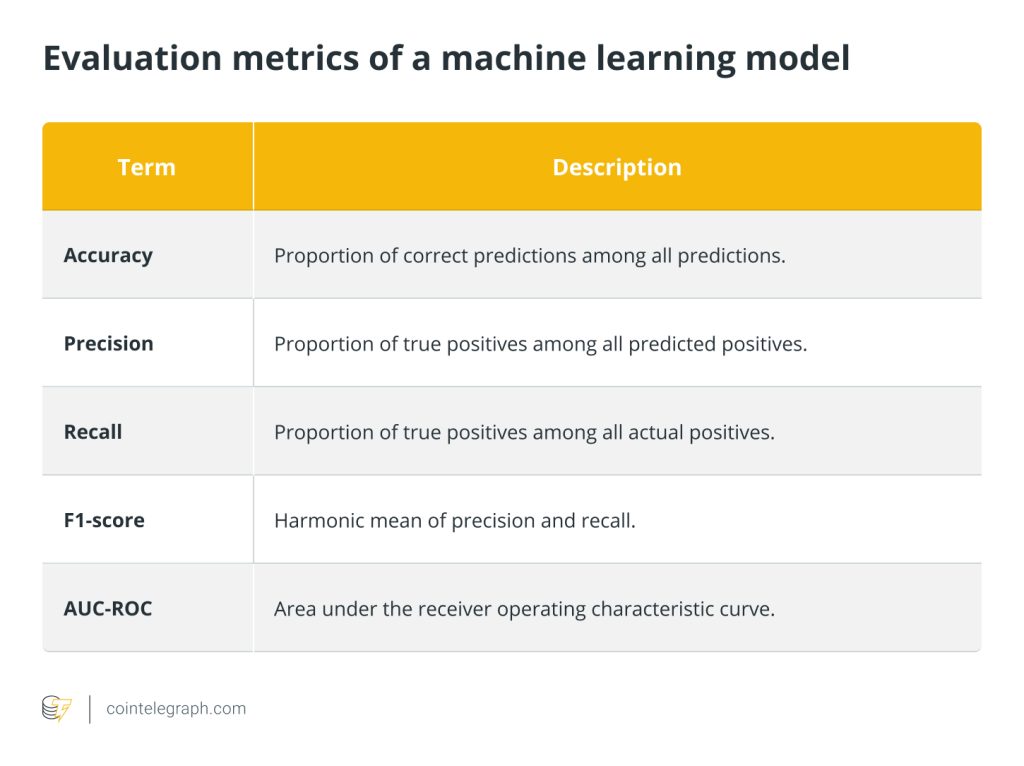
… [Trackback]
[…] Here you can find 6858 additional Info on that Topic: x.superex.com/academys/beginner/1917/ […]
… [Trackback]
[…] Find More Information here on that Topic: x.superex.com/academys/beginner/1917/ […]
… [Trackback]
[…] Find More on on that Topic: x.superex.com/academys/beginner/1917/ […]
… [Trackback]
[…] Here you can find 54098 additional Information on that Topic: x.superex.com/academys/beginner/1917/ […]
… [Trackback]
[…] Information on that Topic: x.superex.com/academys/beginner/1917/ […]
… [Trackback]
[…] Find More on that Topic: x.superex.com/academys/beginner/1917/ […]
… [Trackback]
[…] Read More on to that Topic: x.superex.com/academys/beginner/1917/ […]
… [Trackback]
[…] Information to that Topic: x.superex.com/academys/beginner/1917/ […]
… [Trackback]
[…] Read More Information here to that Topic: x.superex.com/academys/beginner/1917/ […]
… [Trackback]
[…] Read More on that Topic: x.superex.com/academys/beginner/1917/ […]
… [Trackback]
[…] Information on that Topic: x.superex.com/academys/beginner/1917/ […]
… [Trackback]
[…] Find More to that Topic: x.superex.com/academys/beginner/1917/ […]
… [Trackback]
[…] Find More on on that Topic: x.superex.com/academys/beginner/1917/ […]
… [Trackback]
[…] Information to that Topic: x.superex.com/academys/beginner/1917/ […]
… [Trackback]
[…] Info on that Topic: x.superex.com/academys/beginner/1917/ […]
… [Trackback]
[…] Find More Information here on that Topic: x.superex.com/academys/beginner/1917/ […]
… [Trackback]
[…] Here you can find 92372 more Information on that Topic: x.superex.com/academys/beginner/1917/ […]
… [Trackback]
[…] Here you can find 91754 more Information to that Topic: x.superex.com/academys/beginner/1917/ […]
… [Trackback]
[…] Read More here to that Topic: x.superex.com/academys/beginner/1917/ […]
… [Trackback]
[…] Here you can find 24713 additional Information to that Topic: x.superex.com/academys/beginner/1917/ […]
… [Trackback]
[…] Info on that Topic: x.superex.com/academys/beginner/1917/ […]
… [Trackback]
[…] There you will find 35680 additional Info on that Topic: x.superex.com/academys/beginner/1917/ […]